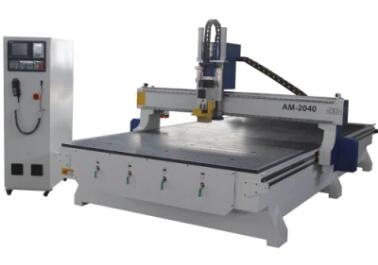Shaping a Sustainable Future: Plastic Woodworking Machinery
2023-10-23
In the realm of woodworking and manufacturing, sustainability has become a driving force behind innovation and progress. One of the standout developments in this quest for eco-friendliness is the advent of plastic woodworking machinery. This technology is revolutionizing the way wood-based products are created, offering a range of benefits that combine traditional craftsmanship with environmental consciousness.
The Fusion of Plastic and Wood
Plastic woodworking machinery is a category of equipment designed to work with wood and wood-based materials, using advanced plastic components. This fusion of traditional woodworking techniques with modern plastic technology brings forth a range of advantages that extend far beyond the workshop.
Key Advantages:
1. Sustainability: One of the most compelling aspects of plastic woodworking machinery is its contribution to sustainability. By utilizing recycled plastics in the manufacturing process, these machines reduce the need for virgin materials and minimize waste. This aligns well with the global push for sustainable practices.
2. Durability: Plastic components in woodworking machinery are often highly durable and resistant to wear and tear. This means reduced maintenance and replacement costs, leading to increased cost-efficiency for woodworkers.
3. Weight Reduction: Plastic components are lighter than traditional metal parts, making machinery more portable and easier to handle. This added mobility can be a significant advantage in workshop environments.
4. Versatility: These machines can work with a wide range of wood-based materials, from solid wood to engineered wood products. This versatility opens up new possibilities for woodworkers to create innovative designs and products.
5. Enhanced Precision: Plastic components can be engineered with precision and tight tolerances, resulting in machinery that offers higher accuracy in woodworking tasks.
Applications of Plastic Woodworking Machinery
The applications of plastic woodworking machinery are diverse and span various industries:
1. Carpentry and Joinery: In the world of carpentry, these machines are used for crafting intricate wooden details, furniture, and cabinetry with a strong focus on precision and sustainability.
2. Woodworking Workshops: Small to medium-sized workshops benefit from the mobility and versatility of plastic woodworking machinery. They can create everything from custom furniture to detailed carvings.
3. Furniture Manufacturing: Large-scale furniture manufacturing operations incorporate these machines to improve efficiency and reduce waste, contributing to cost savings and sustainability.
4. Cabinet Making: Custom cabinet makers can achieve intricate designs and tight tolerances with the help of these machines, ensuring the perfect fit for every project.
5. Artisan Woodworking: Artisans who work with wood can take advantage of the precision and versatility offered by plastic woodworking machinery to bring their creative visions to life.
Challenges and Considerations
While plastic woodworking machinery has numerous advantages, it's important to consider a few challenges:
1. Initial Investment: The cost of these machines can be higher than traditional woodworking equipment. However, this is often offset by long-term savings in maintenance and improved efficiency.
2. Maintenance and Repairs: Finding technicians with expertise in plastic woodworking machinery may be a challenge in some regions, making maintenance and repairs more complex.
3. Material Compatibility: Woodworkers must ensure that the specific plastic components are compatible with their woodworking materials and practices.
In conclusion, plastic woodworking machinery represents a remarkable advancement in woodworking technology. By combining sustainability, precision, and durability, these machines are helping the woodworking industry evolve to meet the demands of the modern world. As we continue to seek ways to reduce environmental impact and improve efficiency, plastic woodworking machinery offers a glimpse into a more sustainable future for woodworking and manufacturing.



